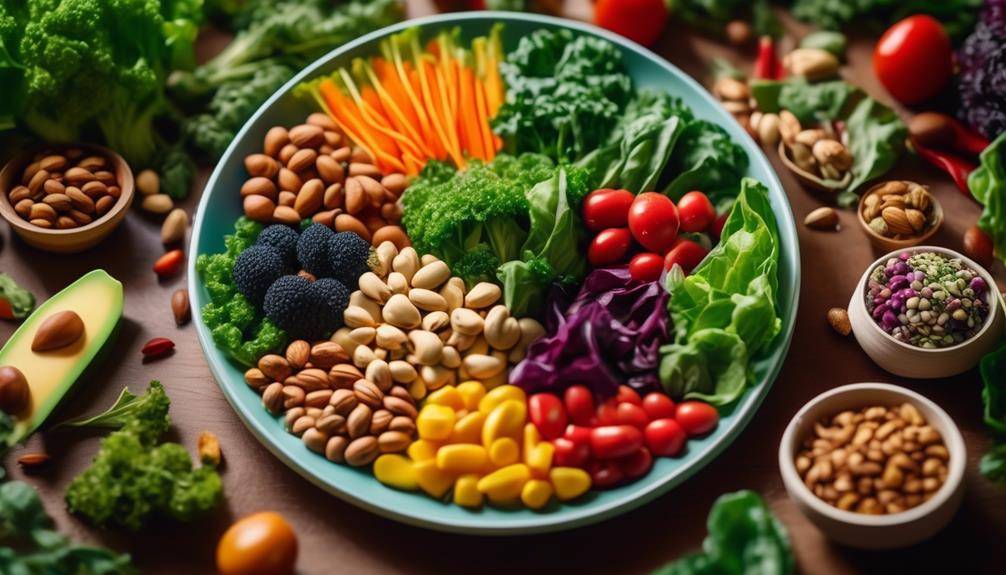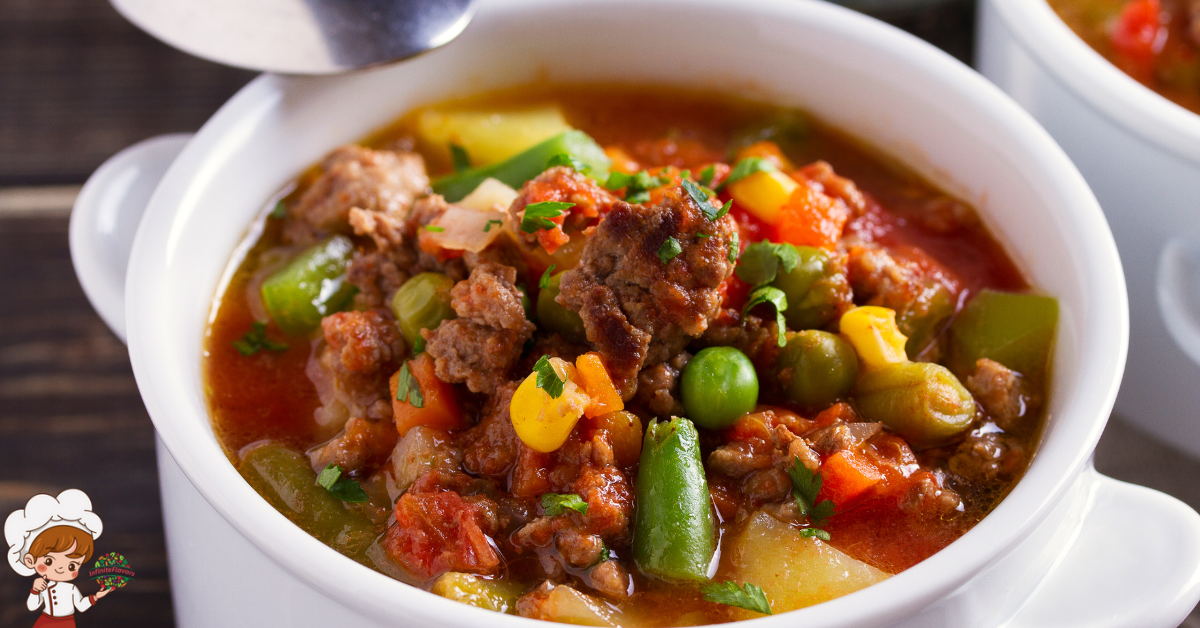Vegan Diet for Heart Health

Have you ever wondered if a vegan diet could truly improve your heart health? Well, the answer might surprise you. Recent studies have suggested that adopting a Vegan Diet for Heart Health can have significant benefits for your cardiovascular well-being. But what exactly does it entail, and how does it impact your heart health? In this discussion, we will explore the potential advantages of a vegan diet when it comes to lowering the risk of heart disease, managing cholesterol levels, and maintaining a healthy blood pressure. So, if you’re curious to know more about how plant-based foods can contribute to a heart-healthy lifestyle, keep reading.
Benefits of a Vegan Diet for Heart Health
Switching to a vegan diet can significantly improve your heart health by reducing the risk of heart disease and lowering levels of cholesterol and blood pressure. Lowering blood pressure is crucial for maintaining a healthy heart, and adopting a vegan diet can help achieve this. Research has shown that individuals following a vegan diet tend to have lower blood pressure levels compared to those who consume animal products.
One study published in the journal JAMA Internal Medicine analyzed the diets of over 20,000 participants and found that those who followed a vegan diet had lower systolic and diastolic blood pressure compared to non-vegans. The study also demonstrated that the longer an individual followed a vegan diet, the greater their reduction in blood pressure. This suggests that adopting a vegan diet can have a positive, long-term impact on blood pressure management.
In addition to lowering blood pressure, a vegan diet is also beneficial for managing diabetes. Research has shown that individuals with diabetes who follow a vegan diet have better blood sugar control and improved insulin sensitivity compared to those who consume animal products. A vegan diet, rich in whole grains, fruits, vegetables, and legumes, provides a high-fiber and low-fat approach to managing diabetes. This can help stabilize blood sugar levels and reduce the risk of complications associated with diabetes.
Lowering the Risk of Heart Disease With a Vegan Diet
Lowering your risk of heart disease is a significant benefit of adopting a vegan diet. Studies have shown that a plant-based diet can have a positive impact on cholesterol levels, reducing the levels of LDL (bad) cholesterol and increasing the levels of HDL (good) cholesterol. By eliminating animal products and focusing on whole, plant-based foods, you can potentially lower your risk of heart disease and improve your overall heart health.
Benefits of Vegan Diet
Adopting a vegan diet can significantly reduce the risk of developing heart disease. Here are three benefits of incorporating a vegan diet into your lifestyle:
- Lowering cholesterol levels: A vegan diet is naturally low in saturated fats and cholesterol, which are major contributors to heart disease. By eliminating animal products from your diet, you can reduce your cholesterol levels and improve heart health.
- Weight loss: Many people turn to a vegan diet for weight loss purposes. Plant-based foods tend to be lower in calories and higher in fiber, which can help you feel fuller for longer and promote weight loss. Shedding excess weight can reduce the strain on your heart and lower the risk of heart disease.
- Increased antioxidant intake: Fruits, vegetables, and whole grains, which are staples of a vegan diet, are rich in antioxidants. These powerful compounds can help reduce inflammation and oxidative stress, both of which are risk factors for heart disease.
Incorporating a vegan diet into your lifestyle can provide numerous benefits for your heart health, including lower cholesterol levels, weight loss, and increased antioxidant intake.
Impact on Cholesterol Levels
Incorporating a vegan diet into your lifestyle can have a positive impact on your cholesterol levels, reducing the risk of heart disease. Research has shown that following a vegan diet can lead to lower levels of total cholesterol, LDL cholesterol (the “bad” cholesterol), and triglycerides. This is mainly due to the absence of animal products, which are high in saturated fats and cholesterol.
Additionally, a vegan diet is typically high in fiber, which can help lower cholesterol levels. The weight loss associated with a vegan diet can also contribute to improved cholesterol levels. Furthermore, a vegan diet is known for its anti-inflammatory properties, which can further support heart health. By adopting a vegan diet, you can actively take steps towards maintaining healthy cholesterol levels and reducing the risk of heart disease.
Vegan Diet and Its Impact on Cholesterol Levels
If you’re concerned about your cholesterol levels, adopting a vegan diet may be beneficial. Studies have shown that following a plant-based diet can significantly lower cholesterol levels, especially LDL cholesterol which is considered the “bad” cholesterol. By eliminating animal products and focusing on whole plant foods, you can naturally reduce your cholesterol levels and improve heart health.
Cholesterol and Veganism
A vegan diet can significantly lower cholesterol levels, promoting heart health. Here are three ways a vegan diet can impact cholesterol levels and contribute to heart disease prevention:
- Low in saturated fat: Animal products, such as meat, dairy, and eggs, are high in saturated fat, which can raise cholesterol levels. By eliminating these foods from your diet, you can reduce your intake of saturated fat and help lower your cholesterol levels.
- Rich in fiber: Plant-based foods, such as fruits, vegetables, whole grains, legumes, and nuts, are high in fiber. A high-fiber diet has been shown to lower cholesterol levels by binding to cholesterol in the digestive tract and preventing its absorption into the bloodstream.
- Packed with phytosterols: Plant-based foods also contain phytosterols, which are plant compounds that have a structure similar to cholesterol. Phytosterols can compete with cholesterol for absorption in the gut, leading to lower cholesterol levels.
Plant-Based Diet Benefits
Switching to a vegan diet can have a positive impact on your cholesterol levels and contribute to overall heart health. Plant-based nutrition, which emphasizes fruits, vegetables, whole grains, legumes, and nuts, is naturally low in saturated fats and cholesterol. A study published in the Journal of the American Heart Association found that individuals who followed a vegan diet had lower levels of total cholesterol, LDL cholesterol (the “bad” cholesterol), and triglycerides compared to those who followed a non-vegetarian diet.
Additionally, vegan meal planning can help you incorporate heart-healthy foods into your diet, such as avocados, olive oil, and almonds, which are rich in monounsaturated fats that can help lower LDL cholesterol. By adopting a plant-based diet and making thoughtful choices in your meal planning, you can significantly improve your cholesterol levels and promote heart health.
Lowering Cholesterol Naturally
Lowering cholesterol naturally can be achieved through the adoption of a vegan diet, which has been shown to have a positive impact on cholesterol levels. Here’s how a vegan diet can help you lower your cholesterol levels:
- Lowering triglycerides: A vegan diet, which avoids animal products, is typically low in saturated fats and cholesterol. This can help reduce the levels of triglycerides, a type of fat in the blood that is closely linked to heart disease.
- Dietary fiber: Plant-based foods are rich in dietary fiber, which can help lower cholesterol levels. Soluble fiber, found in foods like oats, beans, and fruits, binds to cholesterol in the digestive tract and helps eliminate it from the body.
- Cholesterol levels: Studies have shown that adopting a vegan diet can significantly lower total cholesterol levels, including the harmful LDL cholesterol. This is due to the absence of dietary cholesterol from animal products and the high intake of plant-based foods.
Essential Nutrients in a Vegan Diet for Cardiovascular Well-being
To maintain optimal cardiovascular health on a vegan diet, it is crucial to ensure that you are obtaining all the essential nutrients your body needs. While a well-planned vegan diet can provide all the necessary nutrients for heart health, there are certain nutrients that may require extra attention to prevent deficiencies and promote heart disease prevention.
One essential nutrient that is commonly associated with a vegan diet is vitamin B12. This vitamin is primarily found in animal products, and deficiencies can lead to anemia and neurological problems. To ensure you are getting enough vitamin B12, it is recommended to include fortified foods or take a B12 supplement.
Omega-3 fatty acids are another important nutrient for heart health. While fish is a common source of omega-3s, plant-based sources such as flaxseeds, chia seeds, and walnuts can still provide these essential fatty acids. Including these foods in your diet can help reduce the risk of heart disease.
Iron is another nutrient that may require attention on a vegan diet. Plant-based sources of iron include legumes, tofu, spinach, and fortified cereals. Pairing iron-rich foods with vitamin C-rich foods can enhance iron absorption.
Calcium is essential for maintaining strong bones and cardiovascular health. While dairy products are a common source of calcium, there are plenty of plant-based sources such as fortified plant milks, tofu, and leafy greens.
To summarize, a well-planned vegan diet can provide all the essential nutrients needed for cardiovascular well-being. Paying attention to nutrients like vitamin B12, omega-3 fatty acids, iron, and calcium can help prevent deficiencies and promote heart disease prevention. Consulting with a registered dietitian can be beneficial in ensuring that your vegan diet is nutritionally balanced and supports heart health.
Vegan Diet and Its Role in Blood Pressure Management
Implementing a vegan diet can play a significant role in managing blood pressure levels. Here are three reasons why a vegan diet is beneficial for blood pressure management:
- Reduced Sodium Intake: A vegan diet naturally eliminates high-sodium processed foods, such as deli meats, canned soups, and fast food. These foods are known to contribute to high blood pressure. By adopting a vegan diet, you can significantly reduce your sodium intake, which can help lower your blood pressure.
- Increased Intake of Potassium: Plant-based foods, such as fruits, vegetables, legumes, and nuts, are rich in potassium. Potassium helps relax blood vessel walls and excrete excess sodium through urine, thereby reducing blood pressure. By following a vegan diet, you can increase your intake of potassium and promote healthier blood pressure levels.
- Rich in Fiber: A vegan diet is typically high in fiber due to the abundance of whole grains, fruits, and vegetables. Fiber has been shown to lower blood pressure by improving blood vessel function and reducing cholesterol levels. By incorporating more fiber-rich foods into your diet, you can support better blood pressure management.
In addition to these benefits, research has consistently shown that individuals who follow a vegan diet tend to have lower blood pressure levels compared to those who consume animal products. However, it’s important to note that simply adopting a vegan diet may not be enough to manage blood pressure effectively. It is crucial to combine dietary changes with other healthy lifestyle practices, such as regular exercise and stress management.
Incorporating Plant-Based Foods Into Your Heart-Healthy Diet
By incorporating plant-based foods into your diet, you can further enhance your heart-healthy lifestyle. Plant-based recipes offer a wide range of delicious options that not only promote heart health but also aid in weight loss. Adopting a vegan diet can be an effective strategy for managing weight and reducing the risk of heart disease.
Plant-based foods are naturally low in saturated fat and cholesterol, making them beneficial for heart health. Fruits, vegetables, legumes, whole grains, nuts, and seeds are rich in fiber, vitamins, minerals, and antioxidants that support cardiovascular health. Incorporating these foods into your meals can help lower blood pressure, reduce inflammation, and improve cholesterol levels.
When following a vegan diet for weight loss, it is important to focus on nutrient-dense foods that provide satiety without excessive calories. Incorporate a variety of fruits and vegetables into your meals, as they are low in calories and high in fiber. Legumes such as lentils, chickpeas, and black beans are excellent sources of protein and fiber, helping to keep you full for longer periods.
Incorporating plant-based proteins like tofu, tempeh, and seitan can also aid in weight loss. These protein sources are lower in calories and saturated fat compared to animal-based proteins. Additionally, consuming healthy fats from sources like avocados, nuts, and seeds can further promote satiety and weight management.
To maintain a heart-healthy vegan diet, it is important to plan your meals and ensure a balanced intake of essential nutrients. Consulting with a registered dietitian can help you create a personalized meal plan that meets your nutritional needs and supports your heart health goals.
Vegan Diet for Heart Health; Frequently Asked Questions
Can a Vegan Diet Completely Eliminate the Risk of Heart Disease?
A vegan diet can significantly reduce the risk of heart disease by lowering cholesterol levels and providing numerous benefits. However, it cannot completely eliminate the risk as other factors like genetics and lifestyle choices also play a role.
Is It Necessary to Take Supplements on a Vegan Diet for Heart Health?
You may need to take supplements on a vegan diet for heart health to meet your nutritional requirements.
Can a Vegan Diet Help in Reversing Existing Heart Disease?
A vegan diet has been shown to be effective in reversing existing heart disease. Studies have found that individuals who follow a plant-based diet have reduced risk factors for heart disease and improved heart health.
What Are Some Common Challenges or Pitfalls of Following a Vegan Diet for Heart Health?
Some challenges and pitfalls of following a vegan diet for heart health include the need for careful meal planning to ensure adequate nutrient intake, potential deficiencies in certain vitamins and minerals, and the difficulty of finding vegan options when dining out.
Are There Any Specific Vegan Foods or Ingredients That Should Be Avoided for Heart Health?
To maintain heart health on a vegan diet, it’s important to avoid specific foods that could potentially harm your cardiovascular system. Additionally, essential supplements can help ensure you’re meeting all your nutritional needs.
Conclusion
In conclusion, adopting a vegan diet can have significant benefits for heart health. By eliminating animal products and focusing on plant-based foods, individuals can lower their risk of heart disease, improve cholesterol levels, and manage blood pressure. It is important to ensure that essential nutrients are included in a vegan diet to maintain cardiovascular well-being. By incorporating more plant-based foods into your diet, you can support a heart-healthy lifestyle.








